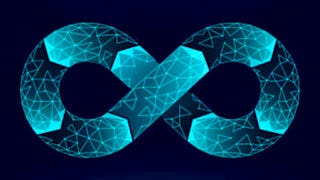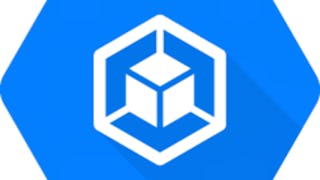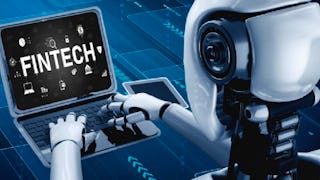- Browse
- Hardware
Hardware Courses
Hardware courses can help you learn circuit design, microcontroller programming, computer architecture, and embedded systems. You can build skills in troubleshooting hardware issues, optimizing performance, and integrating various components. Many courses introduce tools like Arduino, Raspberry Pi, and CAD software, that support creating prototypes and testing designs.
Popular Hardware Courses and Certifications

Skills you'll gain: Apple software proficiency, Mac OS, User Accounts, System Support, Software Installation, Apple Hardware proficiency, File Management, System Configuration, Technical Support, General Networking, Data Storage, Data Management, Network Administration, Computer Networking, Encryption
Intermediate · Course · 1 - 3 Months
 Status: NewNewStatus: Free TrialFree Trial
Status: NewNewStatus: Free TrialFree TrialSkills you'll gain: Peripheral Devices, Hardware Troubleshooting, Desktop Support, Computer Hardware, Technical Support, System Requirements, System Configuration, Computer Displays, Issue Tracking, Usability
Beginner · Course · 1 - 4 Weeks
 Status: PreviewPreview
Status: PreviewPreviewSkills you'll gain: Chef (Configuration Management Tool), DevOps, Infrastructure as Code (IaC), Amazon Web Services, Continuous Integration, User Accounts, Amazon Elastic Compute Cloud, MySQL, Continuous Deployment, Application Deployment, WordPress, Configuration Management
Beginner · Course · 1 - 3 Months
 Status: Free TrialFree Trial
Status: Free TrialFree TrialSkills you'll gain: Kubernetes, Cloud-Native Computing, Google Cloud Platform, Data Persistence, Scalability, Application Deployment, Cloud Infrastructure, Containerization, Load Balancing, Cloud Security, General Networking, Configuration Management
4.9·Rating, 4.9 out of 5 stars7 reviewsIntermediate · Course · 1 - 3 Months
 Status: PreviewPreviewG
Status: PreviewPreviewGGoogle Cloud
Skills you'll gain: Google Cloud Platform, Dashboard, Billing, Billing Systems, Cost Management, Resource Management, Google Sheets, Expense Management, Cloud Management, Accounting and Finance Software, Organizational Structure, Identity and Access Management, Configuration Management
Beginner · Course · 1 - 4 Weeks
 Status: NewNewStatus: Free TrialFree Trial
Status: NewNewStatus: Free TrialFree TrialSkills you'll gain: Prompt Engineering, Generative AI, Prompt Engineering Tools, Miro AI, Financial Accounting, Cash Flow Forecasting, Accounting, Risk Analysis, Cash Flows, Data Processing
Beginner · Course · 1 - 4 Weeks
 Status: NewNewStatus: PreviewPreviewA
Status: NewNewStatus: PreviewPreviewAAmazon Web Services
Skills you'll gain: AWS Identity and Access Management (IAM), Identity and Access Management, Cloud Security, Amazon Web Services, Cloud Management, Cyber Governance, Security Controls, Amazon CloudWatch, Data Governance, Governance, Governance Risk Management and Compliance, Compliance Management, Multi-Tenant Cloud Environments, Continuous Monitoring, Risk Control, Account Management, Threat Detection, Automation, Configuration Management, Budget Management
Intermediate · Course · 1 - 3 Months
 Status: NewNewStatus: Free TrialFree Trial
Status: NewNewStatus: Free TrialFree TrialSkills you'll gain: Computer Hardware, Hardware Troubleshooting, Networking Hardware, Desktop Support, USB, Data Storage, Hardware Architecture, System Configuration, Peripheral Devices, Data Storage Technologies, General Networking, Operating Systems, Display Devices
Beginner · Course · 1 - 4 Weeks

Skills you'll gain: Control Systems, Computer Vision, Image Analysis, Robotics, Automation, Embedded Software, Test Automation, Simulations, Systems Architecture, Convolutional Neural Networks, Deep Learning, Software Architecture, Traffic Flow Optimization, Artificial Neural Networks, Global Positioning Systems, Predictive Modeling, Safety Standards
Intermediate · Course · 1 - 3 Months
 Status: PreviewPreviewE
Status: PreviewPreviewEEDUCBA
Skills you'll gain: Application Deployment, Configuration Management, Application Performance Management, Application Servers, Model View Controller, UI Components, Virtual Environment
4.7·Rating, 4.7 out of 5 stars23 reviewsIntermediate · Course · 1 - 3 Months
 Status: Free TrialFree Trial
Status: Free TrialFree TrialSkills you'll gain: Object Oriented Programming (OOP), Object Oriented Design, Electronic Components, C and C++, C++ (Programming Language), Embedded Software, Hardware Troubleshooting, Program Development, Maintainability, Debugging, Development Environment
Intermediate · Course · 1 - 3 Months

Skills you'll gain: Public Key Infrastructure, Cryptography, Key Management, Encryption, Windows Servers, Infrastructure Security, Active Directory, Network Infrastructure, Authentications, Cybersecurity, System Configuration, Configuration Management, Data Integrity
Intermediate · Course · 1 - 3 Months
In summary, here are 10 of our most popular hardware courses
- Apple Certified Support Professional macOS 11: Packt
- Cisco Certified Support Technician IT Support 100-140 Unit 4: Pearson
- Automating Infrastructure - Chef for DevOps: Whizlabs
- Architecting with Google Kubernetes Engine: Workloads em Português Brasileiro: Google Cloud
- Understanding Your Google Cloud Costs en Español: Google Cloud
- Generative AI Essentials for Finance and Accounting: Edureka
- AWS Security Governance at Scale: Amazon Web Services
- Cisco Certified Support Technician IT Support 100-140 Unit 3: Pearson
- Self-Driving Car Specialization Course: Packt
- Python Pyramid - Beginners: EDUCBA










